Callum Skinner: From racing at Meadowbank to Olympic glory
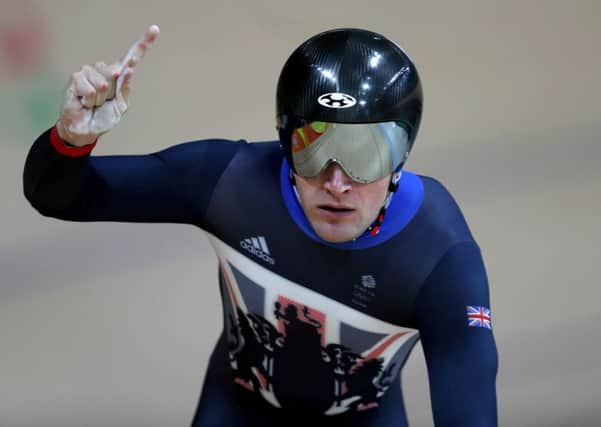

It was a far cry from his teenage training days at Meadowbank where the wind and rain would beat down as he honed his skills on the velodrome.
The weight of expectation and pressure on Callum Skinner’s shoulders was huge as he took to the racing track at Rio 2016 – but the rest will go down in history.
Advertisement
Hide AdAdvertisement
Hide AdBecoming the first Scot of the competition to win a gold medal, the former James Gillespie’s High School pupil was part of Team GB’s men’s track sprint team on Thursday who took not only gold, but set a new Olympic record as they beat New Zealand for the sought-after accolade.
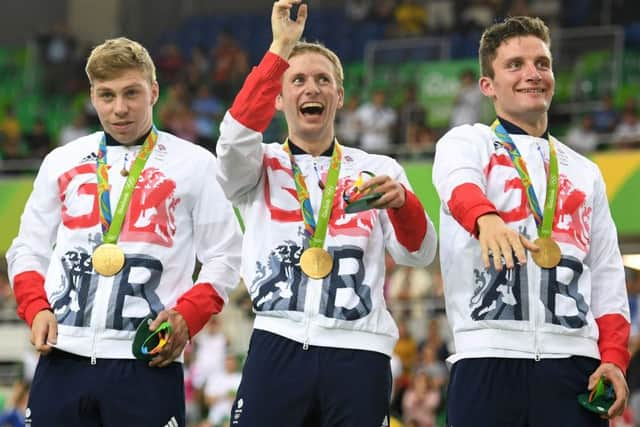

Amazingly, he then held the Olympic record during the first stage of the men’s sprint – until it was smashed again just minutes later.
“I’m over the moon to be Scotland’s first Olympic champion of these games,” Callum told the Evening News. “It was such a tough event. The Olympic record bounced back between the Kiwis and ourselves through the rounds.
“To win against the world champions with an Olympic record, there is nothing better.”
Advertisement
Hide AdAdvertisement
Hide AdHis cycling story begins at Meadowbank where he joined The Racers aged 12, keen to try out track cycling.
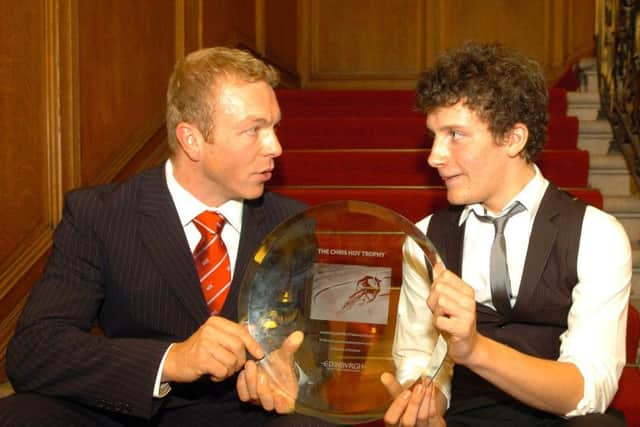

Born in Glasgow, to parents Scott and Judith Crichton, Callum moved to Bruntsfield aged 12 and like most children eager to have a go on the Capital’s velodrome, he hired a bike from the club for his training sessions owing to the huge cost of buying such specialist equipment outright.
The story goes that on his 12th birthday he sat at home watching Chris Hoy on the TV winning gold in the men’s kilo at the 2004 Athens Olympic Games and was inspired to take up the sport.
The Racers held taster sessions on the back of Hoy’s success, giving Callum the perfect opportunity to have a go, and within four years of Athens, he had broken Hoy’s own British national 200-metre record for his age category.
Advertisement
Hide AdAdvertisement
Hide AdHe was presented with the inaugural Chris Hoy Trophy for the achievement – just one of his many brushes with the fellow Edinburgh sportsman who had become his hero and to whom he is now compared.
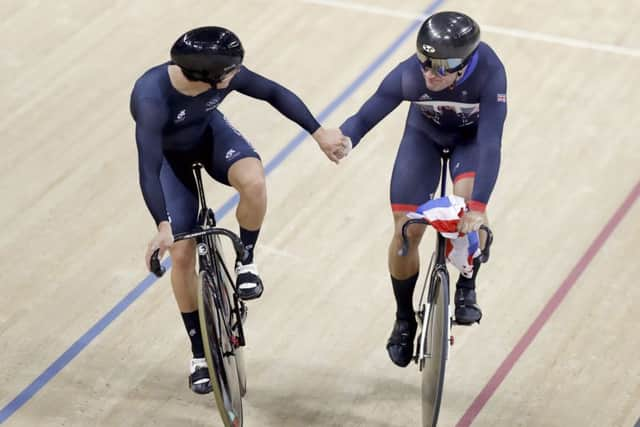

“From the first time I saw Callum I could tell he had the dedication to succeed,” city-based cycling journalist Colin Renton said. “Aged 14, he was one of a group of children and although he did not stand out as being the most talented, he was prepared to do the work.
“Chris Hoy was not the most talented cyclist in Edinburgh but he was the most determined. By the end of training sessions, he had totally hammered himself. Callum is the same. He was not the most talented but he has succeeded because it has meant more to him than to others.”
Renton would watch Callum at Meadowbank in the track league, and continued to follow his progress once he joined the City of Edinburgh Racing Club aged 18.
Advertisement
Hide AdAdvertisement
Hide AdAs a youngster with The Racers – a club he is still a member of – Callum would have the chance to meet his hero Hoy at the twice-yearly grand prix events held at Meadowbank.
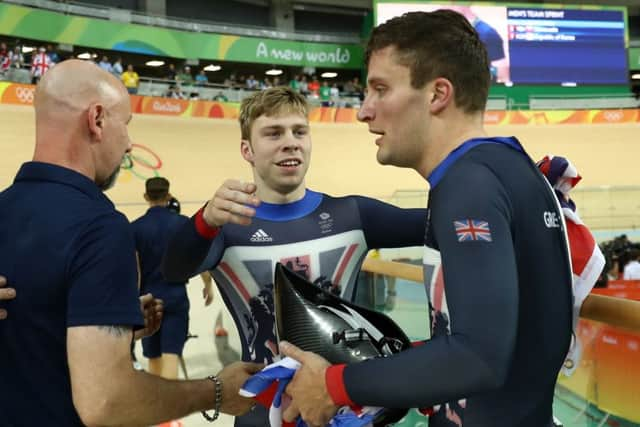

“Chris Hoy used to come back for the grand prix races to compete,” Renton explained. “He and Skinner would spend time together then and it’s something the younger cyclists would have been very excited about.
“Hoy’s dad used to be involved in organising the events so it’s not as though he came and then left straight after. He always made himself available.”
By the age of 18, finishing up at James Gillespie’s, Callum was selected to train in Manchester with British Cycling.
Advertisement
Hide AdAdvertisement
Hide Ad“There was talk of him maybe going to university while he was there, but he never went. He just focused on cycling,” Renton said. “He was always very likeable, a friendly chap, with no ego about him. There was never any impression that he thought he had made it because he got into the academy.”
With British Cycling, Callum progressed through a rigorous training system beginning at the junior academy, going on through the senior academy before reaching the Olympic podium programme, which is dedicated to supporting the country’s elite cyclists.
“It was a big deal for an 18-year-old to leave home like this,” Renton said. “And to come out as an Olympic champion.”


And perhaps more so for a teenager who was both asthmatic and dyslexic.
Advertisement
Hide AdAdvertisement
Hide Ad“The asthma definitely affected his performance at times,” said Brian Annable, Callum’s manager at the City of Edinburgh Racing Club. “Although he was very dedicated, he had quite a bit of ill health.
“Of course, when he turned professional, all that changed as he had dedicated doctors made available to him.”
Ahead of the Glasgow Commonwealth Games in 2014, Callum admitted he had been having respiratory problems but that specialists were working to ensure it would not affect his performance.
“There have been times in the past when I’ve had coughs that drag on and on, two or three weeks at least,” Callum said. “I’ve had it from childhood and, when I was a junior, I took almost a month off because I couldn’t shift this cold.
Advertisement
Hide AdAdvertisement
Hide Ad“British Cycling have been very helpful, sending me to a specialist with more qualifications and awards than I could ever remember.
“He’s a real respiratory specialist and he’s been great at solving the problem, to the extent that less than a week after having a chest infection I’m back to full fitness – that’s a world away from where I used to be.”
In Glasgow, Callum earned selection to ride for Scotland – aged only 18 – and came fourth in the team sprint. His achievements have since gone on and on.
“I was quite surprised at how good he was though,” said Mr Annable, speaking of Callum’s gold medal win at Rio on Thursday. “We were watching him on television and were absolutely delighted.”
Advertisement
Hide AdAdvertisement
Hide AdEmotions understandably ran high in the proud Skinner camp too with his mum Judith revealing that her son had “always loved biking”.
She said: “We did a lot of biking as a family and he had his first bike when he was three or four.
“He went to the velodrome in Edinburgh one time at the end of the track season and just absolutely loved it, so I just think it was that need for speed.
“He always did have a need for speed — fast cars, fast motorbikes, anything fast is good with him.”
Advertisement
Hide AdAdvertisement
Hide AdMessages of congratulations have poured in from across the Capital on the back of Callum’s Olympic success.
“The school is immensely proud of what Callum has achieved,” said Donald Macdonald, headteacher at James Gillespie’s. “Staff who worked with him describe him as a delightful young man who will be an inspiration to our young people in Edinburgh and beyond.”
But for Allister Watson, secretary of The Racers, none of this success has come as much of a surprise.
“I don’t think this has been a dream come true for Callum,” he said. “I think he knew he would do this. It’s a realisation of his hard work.”